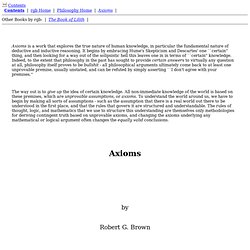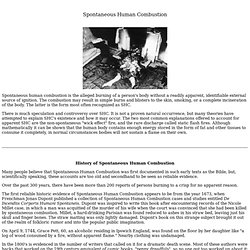

Psychological ("personality") Types. Psychological ("personality") Types According to Jung's theory of Psychological Types we are all different in fundamental ways.

One's ability to process different information is limited by their particular type. These types are sixteen. People can be either Extroverts or Introverts, depending on the direction of their activity ; Thinking, Feeling, Sensing, Intuitive, according to their own information pathways; Judging or Perceiving, depending on the method in which they process received information. Extroverts vs. Extroverts are directed towards the objective world whereas Introverts are directed towards the subjective world. Sensing vs. Sensing is an ability to deal with information on the basis of its physical qualities and its affection by other information. Thinking vs. Thinking is an ability to deal with information on the basis of its structure and its function.
Perceiving vs. Perceiving types are motivated into activity by the changes in a situation. ENTp , ISFp , ESFj , INTj , ENFj. Axioms. Contents Contents | rgb Home | Philosophy Home | Axioms | Other Books by rgb: | The Book of Lilith | Axioms is a work that explores the true nature of human knowledge, in particular the fundamental nature of deductive and inductive reasoning.

It begins by embracing Hume's Skepticism and Descartes' one ``certain'' thing, and then looking for a way out of the solipsistic hell this leaves one in in terms of ``certain'' knowledge. Indeed, to the extent that philosophy in the past has sought to provide certain answers to virtually any question at all, philosophy itself proves to be bullshit - all philosophical arguments ultimately come back to at least one unprovable premise, usually unstated, and can be refuted by simply asserting ``I don't agree with your premises.'' The way out is to give up the idea of certain knowledge.
Axioms by Robert G. Dedication No book is written in a vacuum. Notice Copyright Notice Copyright Robert G. Lulu Press www.lulu.com. Squashed Philosophers Abridged Editions - Plato - The Republic. Zebra Puzzle. There are several versions of this puzzle.

The version below is from the first known publication in Life International magazine on December 17, 1962. The March 25, 1963 issue contained the solution below, and the names of several hundred solvers from around the world. Text of the Life International puzzle[edit] There are five houses.The Englishman lives in the red house.The Spaniard owns the dog.Coffee is drunk in the green house.The Ukrainian drinks tea.The green house is immediately to the right of the ivory house.The Old Gold smoker owns snails.Kools are smoked in the yellow house.Milk is drunk in the middle house.The Norwegian lives in the first house.The man who smokes Chesterfields lives in the house next to the man with the fox.Kools are smoked in the house next to the house where the horse is kept.The Lucky Strike smoker drinks orange juice.The Japanese smokes Parliaments.The Norwegian lives next to the blue house.Now, who drinks water?
Who owns the zebra? Solution[edit] The social effects of marijuana website. Learn the true marijuana effect. Spontaneous Human Combustion. Spontaneous Human Combustion Spontaneous human combustion is the alleged burning of a person's body without a readily apparent, identifiable external source of ignition.

The combustion may result in simple burns and blisters to the skin, smoking, or a complete incineration of the body. The latter is the form most often recognized as SHC. There is much speculation and controversy over SHC. It is not a proven natural occurrence, but many theories have attempted to explain SHC's existence and how it may occur. History of Spontaneous Human Combustion Many people believe that Spontaneous Human Combustion was first documented in such early texts as the Bible, but, scientifically speaking, these accounts are too old and secondhand to be seen as reliable evidence. Over the past 300 years, there have been more than 200 reports of persons burning to a crisp for no apparent reason. In the 1800's is evidenced in the number of writers that called on it for a dramatic death scene. THEOI GREEK MYTHOLOGY, Exploring Mythology & the Greek Gods in Classical Literature & Art.
Western Philosophy.